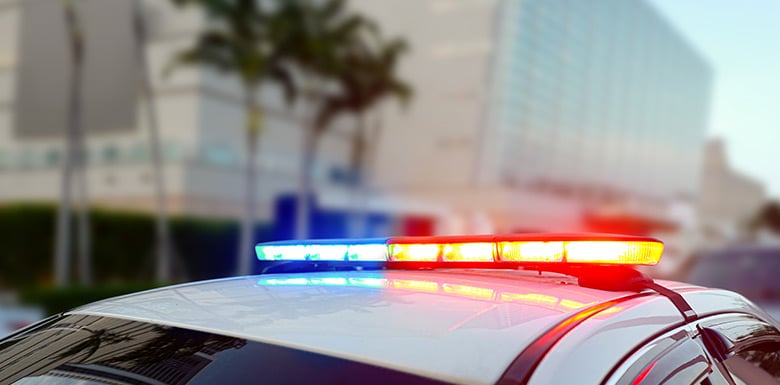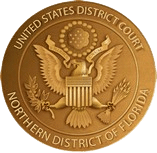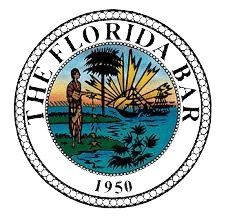
Driving under the influence (DUI) in Florida has severe consequences, including the immediate suspension of your driving privileges. For those charged with DUI, navigating the state’s stringent DUI laws will be daunting enough, not to mention the drastic impact that not being able to drive can have on daily life.
While working with an experienced Pensacola DUI lawyer is critical, by also understanding the specifics of a DUI license suspension in Florida and the legal avenues available, you can better handle the inconvenience of not being able to drive and explore how to get your license reinstated as soon as possible
What Happens to Your License After a DUI in Florida?
After a DUI arrest in Florida, your driver’s license is immediately confiscated, and you are issued a temporary permit valid for 10 days. During this period, referred to as Florida’s 10-day Rule, you can drive for business purposes only and must request a hearing to contest your license suspension.
If you do not request a hearing within these 10 days, or if your challenge fails, your license will be suspended for a period ranging from 6 to 18 months, depending on factors such as prior offenses and whether you refused the breathalyzer test.
How Long Will Your License Be Suspended After a DUI?
The consequences of a Florida DUI on your driver’s license depend on the specifics. Remember, these actions are administrative and separate from criminal DUI penalties in FL, meaning they can proceed independently of criminal proceedings.
A First DUI & Your License
After your first DUI offense in Florida, your driver’s license will be revoked for a minimum of 180 days and up to one year. This action is taken by the Florida Department of Highway Safety and Motor Vehicles (FLHSMV) independently of any criminal penalties you might face. If the DUI resulted in bodily injury, the minimum revocation period extends to three years.
2nd DUI within Five Years
For those convicted of a second drunk driving offense within five years, Florida law mandates a minimum five-year license revocation. However, there is a hardship provision for reinstatement after one year. To qualify for this reinstatement, individuals must demonstrate that they have completed or are enrolled in a DUI education course and possibly other rehabilitative measures.
A 3rd DUI & Your License
If you incur a third DUI within 10 years of the second, the state imposes a minimum ten-year license revocation. Eligibility for hardship reinstatement becomes available after two years, contingent upon stringent compliance with rehabilitative conditions. However, if the third DUI happens more than 10 years after the second, the revocation period reverts to the same range as for a first offense.
4th DUI or More
For a fourth DUI conviction or subsequent offenses, Florida imposes a mandatory permanent revocation of your driving privileges. This drastic measure highlights the state’s zero-tolerance policy for habitual DUI offenders. However, individuals may still seek hardship reinstatement after five years, provided there have been no incarcerations related to the DUIs.
DUI Manslaughter
In cases of DUI manslaughter, the offender faces mandatory permanent revocation of their driver’s license. This is the most severe administrative penalty, reflecting the tragic consequences of DUI incidents resulting in fatalities. Those affected may apply for hardship reinstatement after five years, assuming no other DUI-related convictions are on their record.
Implied Consent in Florida & BAC Test Refusal
In Florida, as in all states, drivers implicitly agree to submit to a Blood Alcohol Concentration (BAC) test when they become licensed drivers. This agreement is known as “implied consent.” By holding a Florida driver’s license, you are presumed to have consented to BAC testing if you are suspected of driving under the influence.
Refusing a lawfully requested BAC test will lead to the following:
- a one-year automatic license suspension for the first refusal
- 18 months for subsequent refusals.
Given these consequences, it is critical for anyone facing a DUI to understand the implications of refusing a DUI test and to seek immediate legal counsel.
What’s a DUI Administrative License Hearing?
An Administrative License Hearing is a legal proceeding conducted by the Florida Department of Highway Safety and Motor Vehicles (FLHSMV) to review and determine the status of a driver’s license after an arrest for DUI.
This hearing is separate from any criminal court proceedings and strictly focuses on the driving privileges of the person arrested. Its purpose is to assess whether the suspension or revocation of the driver’s license was justified based on the evidence.
How to Challenge a DUI Suspension at the Administrative Hearing
Upon being arrested for DUI, a driver’s license is automatically suspended, but they are granted a temporary permit lasting 10 days. This period allows the driver to arrange their defense, manage their immediate transportation needs, and, importantly, request and prepare for an administrative license hearing.
The hearing is the driver’s opportunity to challenge the suspension and argue for the reinstatement of driving privileges.
Request the Hearing
You must request an administrative hearing within 10 days of your DUI arrest. Failing to do so will automatically suspend your license for a period determined by the specifics of your case.
Prepare for the Hearing
Collect and prepare all relevant documents and evidence that may support your case. This can include witness testimonies, any video footage from the time of the arrest, police reports, and any evidence challenging the validity of the BAC testing or the lawfulness of the traffic stop.
Attend the Hearing
During the hearing, you or your attorney will have the opportunity to present your case. This includes questioning witnesses, presenting evidence, and arguing against the legality of the license suspension. The FLHSMV will also present evidence supporting the suspension.
The Decision
After reviewing the evidence from both sides, the hearing officer will decide. If the decision is in your favor, your license will be reinstated. If not, the initial suspension stands.
File an Appeal
If the outcome of the administrative hearing is unfavorable, you may have the option to appeal the decision. This step should be discussed with your attorney to understand the feasibility and the process involved.
How Do I Get DUI Driving Privileges in Florida?
To obtain driving privileges after a DUI in Florida, you may apply for a hardship license, which allows limited driving for business, employment, or educational purposes. This requires proving hardship, completing a DUI education course, and possibly installing an IID. Eligibility and the application process vary based on the number of offenses and specifics of the DUI incident.
Do I Need an Ignition Interlock Device?
In Florida, the Ignition Interlock Device (IID) program typically applies to all offenders convicted of a second DUI within five years, and it may be mandated for first-time offenders with a high BAC (0.15% or above) or if a minor was in the vehicle at the time of the offense. The requirement duration varies based on the number of offenses and specific court orders.
What Happens if I Drive on a DUI Suspension?
Driving on a suspended license after a DUI in Florida is a serious offense and compounds the legal trouble for many. A first offense is usually carries a maximum penalty of 180 days in jail or 12 months of probation. A second offense escalates to a first-degree misdemeanor, with penalties including up to 1 year in jail, probation, and a $1,000 fine.
Subsequent offenses are classified as third-degree felonies, carrying stiffer penalties of up to 5 years in prison, probation, and a $5,000 fine. The severity of the penalties increases based on the number of prior offenses and the details of the violation.
What are the Long-Term Consequences of a DUI License Suspension?
The long-term damage of a DUI license suspension extends far beyond the immediate penalties imposed by the legal system or FLHSMV. Losing your license for driving under the influence in Florida can affect various aspects of life, including financial stability, career prospects, personal relationships, and mental health, making it crucial for individuals to understand the gravity of their actions and take proactive steps to address and mitigate the repercussions.
A DUI suspension may result in:
Increased Insurance Rates
Insurance companies view individuals with DUIs as high-risk drivers, and as a result, they often increase rates to offset the perceived risk of insuring them. These elevated premiums can persist for several years, compounding the financial burden of the DUI conviction.
Employment Challenges
A DUI conviction can pose obstacles to obtaining and maintaining employment, particularly in roles that require driving. Many employers conduct background checks as part of their hiring process, and a DUI conviction may raise red flags about an individual’s judgment, reliability, and adherence to rules and regulations.
Transportation Issues
Without a valid driver’s license, you may struggle to commute to work, attend appointments, or fulfill family obligations. Reliance on public transportation or ridesharing services can be inconvenient, time-consuming, and expensive, especially in areas with limited options.
Legal & Financial Problems
DUI convictions often entail substantial fees, fines, and court costs. Additionally, you may be required to attend alcohol education or treatment programs, which can incur additional expenses. The financial burden may also include costs associated with reinstating a suspended license, installing an ignition interlock device (if required by law), and potential civil lawsuits if the DUI resulted in property damage, injury, or loss of life.
Social Stigma
A DUI conviction can also strain relationships with family and friends, damage one’s reputation within the community, and lead to feelings of shame, guilt, and embarrassment. Moreover, the psychological toll of a DUI conviction, including stress, anxiety, and depression, can have long-lasting effects on mental well-being.
A Permanent Record
In Florida, stringent laws govern driving and record-keeping. According to administrative regulations, any alcohol-related driving offenses remain on your driving record for 75 years, and DUI convictions are ineligible for expungement.
How to Get Your FL License Reinstated after a DUI?
To get your Florida driver’s license reinstated after a DUI, you must complete all court-mandated requirements, which may include a DUI education program, payment of fines, and serving any imposed suspension time. Once the requirements are completed, you can apply for reinstatement through the FLHSMV.
How Can a Lawyer Help with Your License after a Florida DUI
A lawyer can assist in several ways after a Florida DUI. They can represent you in both administrative and criminal proceedings, help challenge the license suspension at an Administrative License Hearing, negotiate for lesser penalties or alternative sentencing like a diversion program, and assist in securing driving privileges and license reinstatement, including preparing for and representing you at the reinstatement hearing.
Don’t Ignore the 10-Day Rule. Fight Your DUI Suspension with Help
When dealing with a DUI suspension in Florida, it’s crucial to seek legal assistance promptly. At Mitkevicius Law, PLLC, we understand the complexities of DUI cases and the importance of timely action regarding your license.
If you’re facing a DUI suspension, don’t navigate it alone. Contact us today at 850-361-2142 for a free and confidential consultation. Let our Pensacola criminal lawyers protect your ability to drive and guide you toward a favorable resolution. Don’t let your 10-day window expire – call today.





